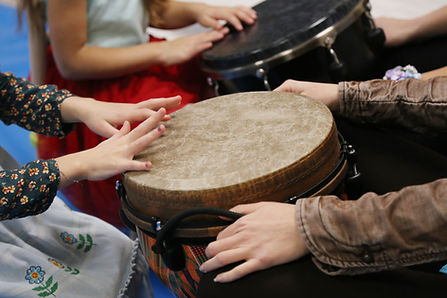
Case Study: Castleview, Severe & Complex Needs School, Stirling
At Inscape Therapies, we take a 360-degree approach to therapeutic support—where professionals, educators, and families are all part of the journey. We believe that meaningful progress happens when everyone around the child is engaged, informed, and empowered. Our work is rooted in collaboration, and we strive to create environments where therapeutic goals align with educational priorities and family values. This case study from Castleview is a powerful example of how music therapy can foster connection, communication, and joy across every layer of a child’s support network.
About the Project
Castleview uses PEF funding to provide weekly music therapy throughout the school year, plus holiday sessions.
Sessions are led by Brian Smith, founder and lead therapist of Inscape Therapies.
Clear goals are set for each pupil, strongly aligned with communication and health & wellbeing.
What Are The Benefits for Pupils?
Awareness, engagement, and interaction
Build anticipation skills
Develop meaningful vocalisations and communicative movements
Experience relaxation, pleasure, and improved emotional wellbeing
Pupils View
This young person has targeted work during music therapy around managing breath patterns as well as building his tolerances and responses around sound. He is responsive and developing this across sessions. Working with Brian supports achievement across foundation milestones and also looks to extend the small network of people within his life, developing the number of meaningful relationships he has. The aim would be to continue this intervention as he progresses to his secondary education, providing consistency and continuity of meaningful experience and the development of therapy goals. During sessions he shows pleasure and can be relaxed, we can see enhanced expressive communication.
Head Teachers View
Music Therapy sessions provide pupils with an extremely positive opportunity which allows them time and space to develop a relationship with the therapist, with there being a real sense of connection from an early point. Pupils show clear recognition of Brian’s voice, and often show signs of excitement and anticipation as soon as they are aware of his presence. During 1:1 sessions the work is highly attuned to the pupil and there can be numerous positive outcomes. An example of this has been where a pupil may show motivation to coordinate their movements in order to independently strike the piano keys while another may engage in a ‘musical conversation’ where their vocalisations are matched in pitch/tone by that of the therapist, who subtly extends that in order to offer challenge to the pupil. The capacity for engagement and motivation to communicate within these sessions makes them an extremely valuable means of learning for our pupils.
Class Teachers View
Through the individual welcome, Brian assesses how each child is feeling and responds appropriately to them. Shy, quiet pupils are given time to watch peers and gain confidence before, gently, being encouraged to participate. Autistic pupils are given opportunities to get up and dance to enable them to then sit and participate in focused activities.
There is a repetitive format to the sessions. This allows the children to develop skills and build confidence. Through this format Brian has individualised targets. This can be:
Developing key word receptive communication
Developing gross motor control, to use a hand that is not usually used, to hold a
beater
To develop expressive communication
To take turns
To build confidence to perform in front of others
Individual processing times
Developing rhythm
As the teacher, it is a valuable opportunity to observe the children as they respond to someone else. I also value the expertise of a music therapist bringing a different skill set from teaching. Brian brings personal insight from a wealth of experience working with a wide range of children over many years. Brian will highlight changes or things to note with the children as they are observed.

Parental View
"Music therapy has been incredibly valuable for our daughter — it brings out an incredible amount of interaction from her, helping her connect, express herself, and truly shine in ways that are deeply meaningful to us."
